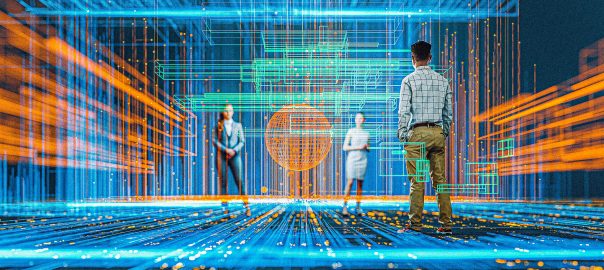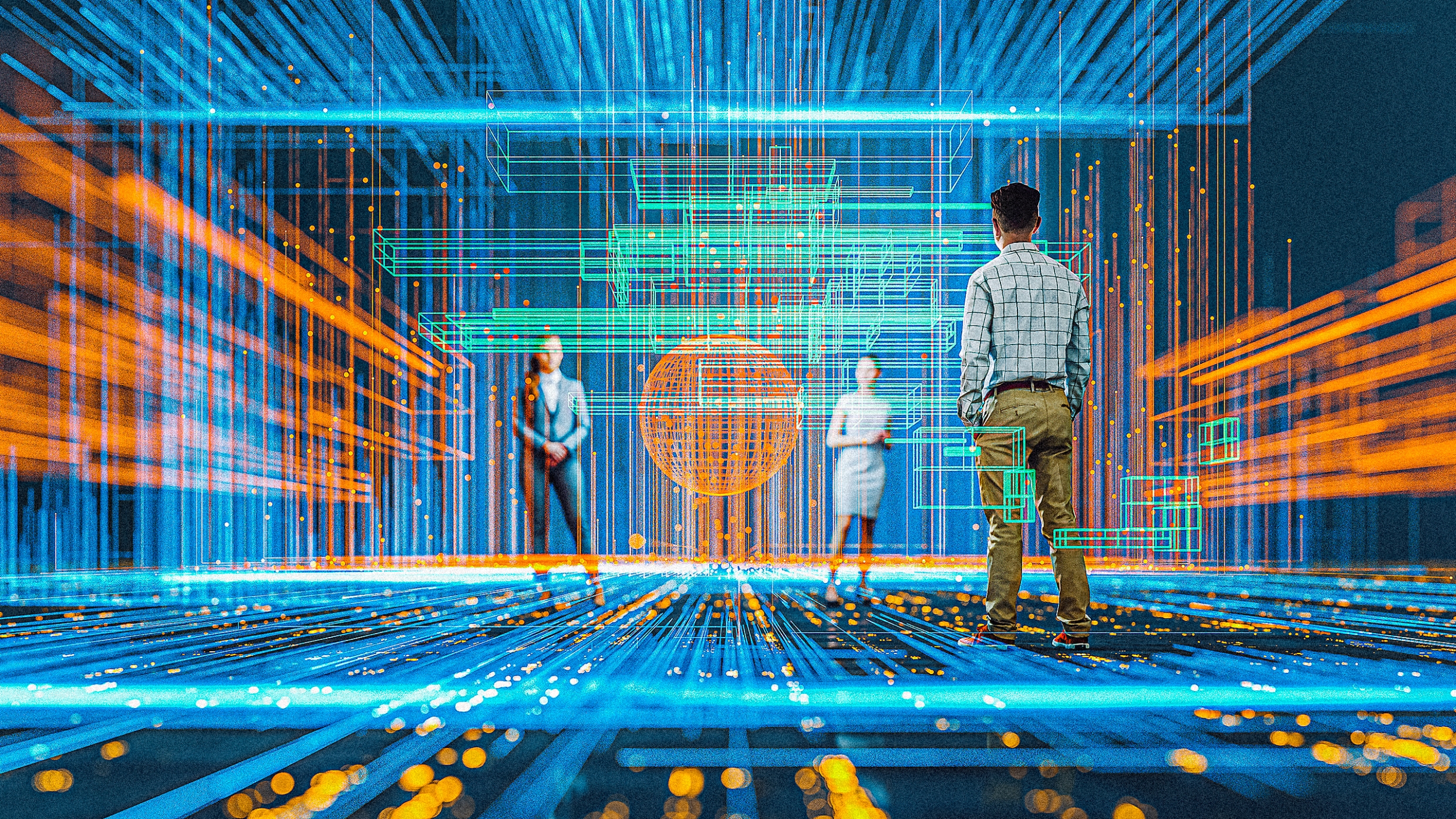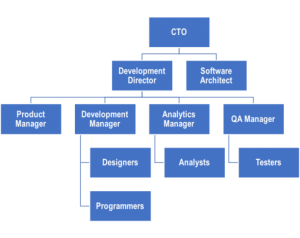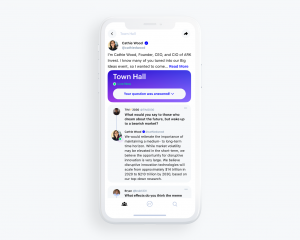Artificial intelligence could be the savior of the office building. Unlike many tech companies that are actively downsizing office space and waffling on RTO timing and policies, AI companies are seeing the need for physical office space to do their suddenly desirable work. The real estate services firm JLL estimates that by the end of 2023, AI companies will occupy 17.2 million square feet of office space across the country.
To put that number in perspective, it’s equivalent to more than half of the amount of office space that’s been leased or subleased between July 2022 and June 2023, according to JLL’s latest U.S. Office Outlook report.
So while office growth is slow coming out of the pandemic, AI is one of the industries keeping commercial real estate afloat. That’s partly due to the way these companies work, according to Katy Redmond, co-lead of JLL’s integrated real estate portfolio services for the Americas. “An important part of this is these AI companies do have a lot of in-office work,” she says. “These are occupiers that are bringing workers into the office, they’re doing the development and collaboration work together.”
Redmond says these companies are opting for newer and flashier buildings in what industry experts call a “flight to quality.” Some are also bucking a trend among tech companies to downsize their office footprint, with JLL estimating that there are 10 AI companies currently in the process of taking on offices of more than 700,000 square feet, or about 15 floors in a large new office building. (By comparison, Facebook- and Instagram-parent company Meta recently had 2.2 million square feet of office space in New York City.) “In terms of look and feel, it’s going to be cutting edge, it’s going to be exciting, it’s going to reflect the brand,” she says.
AI companies are also opting to put down physical office roots in places already known for their tech talent. “We’re already seeing them following a pattern of tech companies before them in general,” Redmond says. “They’re clustering around these already established tech markets.”
More than 40% of AI companies are concentrated in the San Francisco Bay Area, according to Redmond. That’s bringing a big upside to the struggling commercial real estate sector. From 2016 to 2023, these AI companies have tripled their office footprint in the region.
The concentration of these companies and jobs is perhaps unsurprising, according to Mark Muro, senior fellow at the Brookings Institution. He’s the coauthor of a new report showing that 60% of U.S.-based AI job openings are concentrated in 15 metropolitan areas, with San Francisco and San Jose leading the pack. “Especially early in a technology cycle, so-called frontier places or initial hubs become extremely important for often face-to-face exchanges, rarified information exchange, specialized actors, contractors, and suppliers,” Muro says. “I think we’re still in an early stage where it looks like this is launching on a typically highly concentrated technology pathway.”
The concentration can have downsides, according to the Brookings report, such as imbalanced economic development and brain drain in other places. But Muro says the dominance of a few superstar cities is likely to be a temporary condition. As other cities increase their investment in AI training, research and development, and related infrastructure, the industry could begin to spread beyond these early hubs. Getting there, though, may require more proactive investment and incentives at the federal level, he says.
“Because of the possibility of open-source development, more of this could be licensed out across the internet, and more development might be able to occur in new places,” Muro says. “I think you could see more than just a few places get a toehold in this.”
For now, the growth of AI companies and their need for physical office space is a positive for San Francisco, where the pandemic has drained office buildings and left parts of the city’s financial district feeling like a ghost town. AI could be behind further growth. JLL’s Redmond says AI job postings have increased 250% since 2021.
Fast Company senior writer (and San Francisco resident) Mark Sullivan’s recent AI Decoded newsletter reported on what this may mean for the city, noting that AI is increasingly visible in the city’s neighborhoods, cafés, and streets. “The story of my city’s ‘AI boom’ is likely just beginning,” he wrote.
(12)
Report Post








